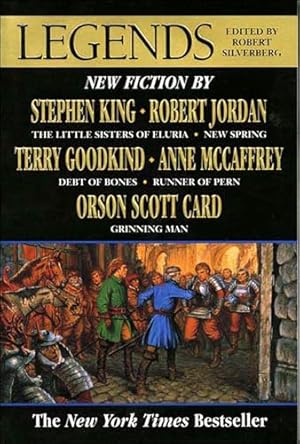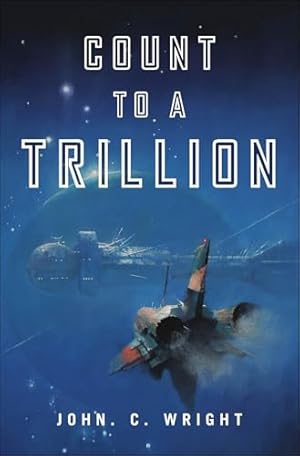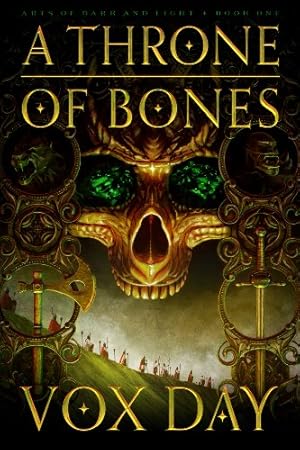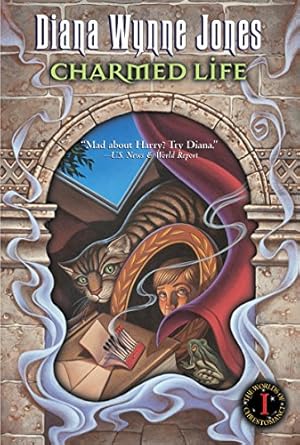Learn more
These promotions will be applied to this item:
Some promotions may be combined; others are not eligible to be combined with other offers. For details, please see the Terms & Conditions associated with these promotions.
Your Memberships & Subscriptions

Download the free Kindle app and start reading Kindle books instantly on your smartphone, tablet, or computer - no Kindle device required.
Read instantly on your browser with Kindle for Web.
Using your mobile phone camera - scan the code below and download the Kindle app.

Fugitives of Chaos (The Chronicles of Chaos Book 2) Kindle Edition
Wright's new fantasy, which began with Orphans of Chaos, and continues in Fugitives of Chaos, is a tale about five orphans raised in a strict British boarding school who begin to discover that they may not be human beings. The students at the school do not age, while the world around them does. The orphans have been kidnapped from their true parents, robbed of their powers, and raised in ignorance by super-beings no more human than they are: pagan gods or fairy-queens, Cyclopes, sea-monsters, witches, or things even stranger.
The five have made sinister discoveries about themselves. Amelia is apparently a fourth-dimensional being; Victor is a synthetic man who can control the molecular arrangement of matter around him; Vanity can find secret passageways through solid walls where none had previously been; Colin is a psychic; Quentin is a warlock. Each power comes from a different paradigm or view of the inexplicable universe: and they should not be able to co-exist under the same laws of nature. Why is it that they can?
The children must experiment with and learn to control their strange abilities in order to escape their captors. Something very important must be at stake in their imprisonment.
- LanguageEnglish
- PublisherTor Books
- Publication dateNovember 14, 2006
- File size3.9 MB
Shop this series
See full series- Kindle Price:$15.97By placing your order, you're purchasing a license to the content and you agree to the Kindle Store Terms of Use.
Shop this series
This option includes 3 books.
Customers also bought or read
- Legends: Stories By The Masters of Modern Fantasy (Memory, Sorrow, and Thorn)
 Kindle Edition$2.99$2.99
Kindle Edition$2.99$2.99 - Summa Elvetica: A Casuistry of the Elvish Controversy & Other Stories (Arts of Dark and Light)
 Kindle Edition$4.99$4.99
Kindle Edition$4.99$4.99
Customers who bought this item also bought
Editorial Reviews
From Publishers Weekly
Copyright © Reed Business Information, a division of Reed Elsevier Inc. All rights reserved.
Review
"A bit like C.S. Lewis's Chronicles of Narnia updated by half a century, but with more gusto." -Locus on Orphans of Chaos "I don't know if John Wright's intent for Orphans of Chaos was to write a Harry Potter for grownups. But that's what he's accomplished. . . .highly enjoyable." --SFsite
"An exciting, unusual, and very satisfying ride through the author's imagination, and the results are certainly going to make Wright even more of a hot property." --Chronicle on Orphans of Chaos
"Start of a complex mythology-based series from the author of the astonishing far-future Golden Age trilogy . . . . Fascinatingly, dazzlingly…erudite fantasy that trends inexorably toward science fiction; addicts will pounce." -Kirkus, starred review on Orphans of Chaos
About the Author
Excerpt. © Reprinted by permission. All rights reserved.
Interlude with Amelia
1.
I was dead for about half a day.
There was still a "me," a girl who woke up in the infirmary, but she only had my memories dated earlier than a fortnight ago. She was a suspicious girl, yes, and she knew her elders were up to something, and she was pretty sure she was not a human being.
But the last two weeks had never been, so she had never crawled through impossible secret passages with Vanity, never flown with Quentin, never seen the Old Gods sitting at their revelry at the meeting of the Board of Visitors and Governors, or learned the horrid tale of the Lamia. She never heard the ringing in a locked safe of the hypersphere shaking from the shock of the music of a siren. She never had a pancake fight with Colin on a morning when all the staff slept, the first day we ever made our own food for ourselves; she never followed Victor into the woods, walked across a snowy landscape that could not be the Gower Peninsula, and never saw a white ship from beyond the edge of the world.
I do not know what it was that happened during those events or during the imprisonment that followed. I cannot point to the moment.
But something had changed me. Amelia was a girl involved in playing an elaborate prank on her elders, keeping secrets from them, trying to find out about her past; serious, yes, but still a prank. She was doing it more to please Victor than for herself. Amelia occupied only the three normal dimensions, like everyone else.
Phaethusa was a woman involved in a war.
It was Amelia who woke up in the infirmary.
2.
Amelia spent about an hour simply lying in her bed in the infirmary while a thin and severe Doctor Fell and an equally severe Sister Twitchett fretted over her, took her temperature, bent their heads together over charts.
Finally Dr. Fell said, "The medications I have been giving you once a month are for some reason ineffective. Are you certain you have been taking the doses as prescribed?"
Amelia tried to hide her dread. Of course she had not been taking those damned medications. Victor did not want her to.
She said, "But, of course, Doctor. You know what's best."
"Znf! I also know you do not believe that. You have reached that unfortunate age where you have all of life's answers and you know everything more perfectly and more profoundly than your elders. But you are a bright girl; you get good marks in math. If I am 3.4375 times your age, and not cognitively deficient, surely I have 3.4375 times your experience and knowledge?"
She blinked up at him. "I am sure I don't know, Doctor. How old am I?"
"Sixteen. Now get up. The Sister will bring you your clothes. Obey instructions in the future or you will find yourself in this place again, or perhaps in someplace worse."
3.
Amelia saw two things that struck her as slightly peculiar and "sensed" one thing that was so very peculiar as to be without any sane explanation. Did she ask questions? Did she ask Dr. Fell for help? She did not. Amelia might have been a child, but she was not a stupid one.
The first odd thing she saw, through the disinfectant plastic drapes hanging around her bed, and through a crack in the open door to the waiting room, was Sister Twitchett, carefully examining the pockets and inner lining of the skirt and blouse she had gotten from Amelia's room. She had an instrument shaped like a horseshoe (a metal detector?), and she was rubbing it slowly up and down the seams. With her other hand, the Sister was feeling every inch of seam with her fingers, looking for irregularities in texture.
While Amelia watched, Sister Twitchett pulled a lump of fabric about the size of a walnut out of Amelia's skirt pocket. It looked like a ribbon or sash that had been knotted and reknotted into a snarl. Twitchett picked at it disinterestedly and, when she could not get it open, shrugged and replaced it in the pocket.
Amelia wondered, Why are they searching my clothes? Nosy grown-ups.
Amelia hurriedly lay down and composed her best innocent face as Twitchett came bustling through the door with the school uniform draped over one arm.
"And remember to put on the necktie!" ordered the Sister.
Amelia grimaced.
4.
The other patient in the infirmary had his hand wrapped in a bandage, and his little finger was clamped in a tiny banana-shaped tube of metal. He was a dark-haired man with sad, tired eyes. The second odd thing Amelia saw was that the man hesitated before introducing himself, as if he had forgotten his own name for a moment. His name was Miles Drinkwater, the new civics teacher. In the spring, he would serve as a coach for a swimming team to be formed. He had hurt himself, naturally enough, swimming.
"I was out of my depth, Miss Windrose," he said.
Amelia thought she detected a slight accent in his voice, as if he perhaps were Italian or Greek, despite his English up-country name.
But what was that look of fear in his eye? Teenagers can sense fear like dogs, and Amelia somehow knew that she intimidated Mr. Drinkwater.
She thought she knew why. Amelia, it must be recalled, was a little proud about her good looks, which she had wished upon herself in youth by staring into a mirror. So Amelia made a point of holding his hand a bit too long when shaking hands, and standing half a step too close, and dropping her eyelids shyly, toying with her richly hated necktie, and doing the little bits of stage business she thought of as "Vanity stuff."
Mr. Drinkwater did seem mildly taken aback, puzzled, and then amused. As if he had been locked in a cage with a raging lioness, only to discover her to be a circus animal, quite tame, doing gentle children's tricks, balancing on balls or leaping hoops or something. He visibly relaxed.
It was the opposite of the expected reaction. Amelia did not know what she did wrong, but she knew she did not do "Vanity stuff" as well as Vanity did. Vamping takes practice, and Amelia (usually) thought such tricks were beneath her.
Humiliating.
Amelia thanked the new teacher, was excused, and walked down the corridor away from the infirmary. She did not bother swaying her hips or darting coy glances over her shoulder back at him. She knew already that she had endangered her grade from Mr. Drinkwater for that quarter, and she had not attended a single lecture yet. Great, just great.
It was just one of the little arbitrary things that can ruin a young girl's morning. Adults forget what it is like not to be able just to shrug things off, not to have any of the important things in your life under your own control.
5.
Outside, Amelia leaned against one of the leafless trees lining the carriage circle before the main house. It was a spot she liked, out of direct line of sight of any windows either from the Manor House or the Great Hall.
She shrugged one shoulder out of her coat, rolled up her sleeve. Amelia rubbed her upper arm and stared at it. She saw nothing out of the ordinary.
And yet, clear and persistent, there was a sensation coming from her upper arm. Not just a sensation, but an emotion. Her arm liked her. Her arm was friendly. A warm, tail-wagging, puppy-like, unabashed friendliness radiated from one motionless spot above her elbow.
6.
Vanity was overjoyed to see her; the two girls met with hugs and little hopping dances of joy. "I didn't have anyone to talk to for a week! It gave me the screaming meemies!"
Vanity had apparently suffered a bout of pneumonia, as well, but recovered four days ago. The only odd thing about her recovery was that Dr. Fell had prescribed "alternative medicine" for her. Instead of just being injected with some drug, Vanity had spent a day drinking odd herbal tea and sniffing candles of incenses concocted by Mrs. Wren ("aromatherapy") and listening to Miss Daw play her wonderful lilting violin ("music therapy"). It was odd, but it seemed to work, for Vanity felt refreshed and content afterwards.
"I think it was just that I got out of classes for a day! Of course I felt better!" Vanity exclaimed, giggling.
Amelia said, "Have you ever had a body part of yours feel . . . well . . . friendly?"
Vanity's huge green eyes glittered. "Colin has. Let me tell you the filthy thing he said about his you-know-what. We're sitting in seminar, and he's holding his pencil in his pocket, and poking up the front of his trousers every time Miss Daw walks by. You know. So his zipper is like . . . You know! Looks like it's throbbing. I couldn't keep from giggling. So Miss Daw spots him. He says, bold as brass, 'Why, Miss Daw, I find lectures about high-energy physics to be most exciting! And my fellow student, Mr. Lovejoy . . .'"
Amelia stood up and stared out the window. Outside, moving with slow, painful hops among the dry bushes and the leafless trees, trying to push a wheelbarrow, was Mr. Glum, the groundskeeper.
"What happened to the groundskeeper . . . ?" asked Amelia in a voice of horror.
Vanity said, "Chopped his own foot off with an axe or something. Pretty clumsy, if you ask me. I say he deserves it. Filthy old man. He's always giving me such looks!"
Amelia said quietly, "You're a horrible person, Vanity. Pitiless and cruel. Go away and leave me alone."
"Well, what's wrong with you? He is a dirty old man! Is something wrong with you?"
"I suppose there is. I don't want to talk to you just now. Go away."
Vanity's lip trembled, and she ran off, tears in her eyes. It was just one of the little arbitrary things that can ruin a young girl's morning.
7.
Amelia had Miss Daw for astronomy that morning. She could not shake the feeling that there was something odd about Miss Daw. Every now and again she was staring at Amelia, and her normally cool, china-doll-perfect looks were shadowed with a hint of emotion. Sorrow? Fear? Amelia did not know what to make of that; perhaps Miss Daw was afraid of catching pneumonia.
Later, in second-period language tutorial, Mrs. Wren had them translating passages from Book IV of Herodotus, the one called Melpomene.
Vanity read: "Many battles were fought, and the Scythians gained no advantage, until at last one of them thus addressed the remainder:"
Amelia read: "What a thing is this that we are doing, Scythian men! We are fighting against our own slaves, and we are not only becoming fewer in number ourselves by falling in battle, but also we are killing them, and so we shall have fewer to rule over in future."
Colin read slowly: "Now therefore to me best it seems spears on the one hand and bows to drop; to take, on the other hand, everyone the horse the whip, sorry Headmaster, I mean his horsewhip, and to go near self? Um, Himself to go near? Lemme try again, Teacher: It seems best to drop the spears and bows and take up every man his horsewhip, and go near the foe and get like right up in his face, and open up an industrial-strength can of whup--"
Mrs. Wren said, "A little less license with the translation, please, Mr. mac FirBolg."
Victor also read slowly, puzzling out the Greek declensions. Or perhaps he was interested in what the passage said: "For, while they were seeing we had arms, then they considered they were similar to us, and born of similars, but whenever they see for themselves we have whips instead of arms, having learned that they are our bondsmen and admitted that, they will not abide our onset."
"On the other hand, Mr. Triumph, you need to take more license. The thought in the original Greek is fluid and logical: the language in many ways superior to our English. Try to capture some of that elusive grace. For example, not born of equals would have been better than born of similars."
Quentin, the best student in Greek, sight-translated without sparing a glance at his lexicon: "The Scythians followed this counsel, and the slaves were so astounded that they forgot to fight, and immediately ran away."
In the seminar discussion afterwards, Amelia made good points, for which the teacher praised her. "The decision of the Scythians was not based on morality; it was economic. No matter what his values or his philosophy, a man who fights his own slaves during a rebellion suffers an economic loss. Whichever slave owner damages his slaves the least gains the advantage."
It was Quentin who said, "Notice that the bonds involved were not physical, but spiritual."
For third period, they had to don cap and gown to attend Headmaster Boggin's philosophy lecture.
The Headmaster was in a more relaxed mood than was his wont, and he plied his lecture on Kant's Prolegomena with many digressions; and he darted sudden questions to the startled students. One question led to another, and eventually Boggin left the lectern, drew up a chair, and turned the class into a round-table seminar. He seemed particularly gracious, almost charming, whenever he spoke to Vanity or Amelia.
"Mr. Triumph, you seem, may I say, unduly critical of the Great Father of Modern Philosophy! What in general seems so to annoy you?"
Victor answered, unabashed, "If you will forgive me, Headmaster, I prefer our own English philosophers to these German metaphysicians. Hobbes spent his first sixteen chapters defining his terms. In Kant, I do not see one single definition at any point. Kant speaks of moral imperatives so abstract that a man is defined as 'immoral' if he takes any pleasure or gets any reward for following moral law; Hobbes speaks of the fear of violent death at the hands of others, and recommends a very logical strategy for avoiding that danger, i.e., combination with those in like danger with yourself. The rewards he offers are immediate and practical: peace; commerce by land and sea; letters; mechanics; agriculture; and the prospect of living a life which is rich, companionable, refined, civil, and long."
"Mr. Triumph, some would say these German metaphysicians offer an almost religious motive to fight on at any cost. If you seek no reward and fear no loss, nothing can deter you. Whereas the cynical common sense of our English Mr. Hobbes would have us submit to any form of tyrant, rather than risk anarchy."
"Who fights more wisely, Headmaster? The zealot who fights without knowing or caring what he stands to gain or lose, or the free man who knows his home and property and personal safety are at stake? Which wars did more damage to the country and the common people, the cynical Wars of the Roses, or the idealistic Thirty Years' War? Forgive me if I prefer the practical to the . . ."
"To the impractical, Mr. Triumph . . . ?"
"No, Headmaster. I was going to say, to the nonsensical."
The Headmaster laughed out loud and, for some reason, seemed so pleased with this answer, or with the class, or perhaps with life in general, that he dismissed his students with ten minutes to go before next period.
8.
Amelia and the other students used the ten minutes to have a quick powwow.
There was a little semicircular courtyard tucked between two wings of the Manor House, set (during the summer) with a little herb garden. An oak had once grown up through the middle of a circular bench; now the stump made a nice footstool. The students all sat there, facing each other and watching over each other's shoulders, watching in every direction for any sign of grown-ups.
Victor put out his hand: "All for one."
Quentin said, "And one for all."
The girls chimed in: "One for all--one for all."
Colin waited until Vanity and Amelia put their hands in the circle, and he plopped his hand down on Amelia's, caressing her knuckles with his finger in an oily fashion; and he said, "And all the girls for me!"
Then he said, "Ow!" when Amelia, without removing her hand from the circle, elbowed him in the ribs.
Victor slapped his neck. That was the sign that everyone should assume the conversation was being bugged.
Then Victor said, "What's your favorite color, Amelia?"
Yellow was her favorite color. Everyone sighed, except Colin, who groaned. Yellow Alert meant no unsecured communications, even when alone, and everyone was to wake up at midnight to participate in a conference (by tap code) through the dormitory walls.
Quentin said, "I'm curious as to why you're curious about her favorite color, Victor." (Translation: Why the alert?)
Victor said, "I see a squirrel. Rare this time of year." (Girls, start chattering.)
Amelia was annoyed. Not only had she and Vanity just had an argument that morning, but it was something of a stereotype, if not an outright insult, to assume that girls could just blather on and on about nothing on demand.
Vanity did not help matters by living up to the stereotype. She apparently had forgiven Amelia, and now wanted to chat about Mr. Drinkwater, the handsome new teacher.
Amelia tried to follow the conversation of the boys (the "Macho Patriarchy," as she called them) while they coughed and tapped the benches in code or made innocuous-sounding comments with double meanings.
Victor said, "The weather is getting warmer." (This comment was hard to translate, because the weather actually was getting warmer. In code, it was supposed to mean that things were heating up; that is, the grown-ups were up to something.)
Quentin: "Seems cool enough to me, except for one thing."
Colin said, "Rum luck that we all came down with Doctorfellitis at the same time. Missing the big meeting, whatever that was. But won't it get colder as the week goes on?"
Victor had been writing a note in his notebook. He passed it around the circle. Unfortunately, he passed it to his left, so that Quentin saw it first and Amelia saw it last.
Never so much drugs before. Never knocked us out for days at a time.
Vanity (still chattering away like a stereotype) took out her pink pen and circled the s in the plural "days" and put a question mark by it. Amelia passed the note back to Victor.
Victor took an almanac out of his coat pocket, opened it to a page he had dog-eared, and passed it to Vanity. Amelia peered over her shoulder. It was a chart listing the predicted times of the rising and the setting of the moon and certain major stars, cross-referenced by latitude and time of year.
Colin said, "Hey, look what I found!" (Translation: I stole this.) And he pulled out a folded back-page from a newspaper, one of the several that arrived daily in the large mailbox, surrounded by stone like a pillbox, at the far end of the drive. He had circled the times given for sunrise and sunset, moonrise and moonset for today.
The two figures agreed that today was Monday, December 18. But the school calendar and the class schedule for today indicated that it was supposed to be Wednesday the thirteenth.
Vanity turned away from Amelia and said to Victor, "Remember what they taught us in science class?" (Translation: Always seek independent confirmation.)
Quentin said, "This may not interest anyone but me . . ." (This may not convince anyone but me.) ". . . but who wants to see a card trick?"
Quentin took his Rider-Waite deck of tarot cards out from a cedar box he kept in an inner pocket. He shuffled, cut the deck into three piles. He said, "Pick a card, any card."
Vanity leaned across the circle and picked one of the cards, turned it faceup. It was Key Eighteen: the Moon.
Quentin said, "That's been happening all day."
Colin said, "Good job in language tutorial today. Not everyone speaks Greek as well as you do, pal." He passed him Victor's notebook. "Why don't you write out that passage for me we were looking at."
Quentin wrote in his small precise hand:
--2day clearly Monday, not Wednesday. Monday is assoc w/ Moon (obvsly!) but also w/ White Roses, silver, Willow trees. All signs v. obvious. Saw Owl by day, flew widdershins thrice around clock tower: Warning of Danger! Key XVIII=deception.
Colin rolled his eyes and sighed. "Look, the big meeting is over and we missed it. The weather is turning colder again. We all got sick, but we're all better now, so . . . so what is all this? My favorite color is Irish green. Why don't we all just relax?"
Victor leaned over and pointed to what he had previously written in the notebook:
Never knocked us out for days at a time.
Colin turned to the rest of us. "What's that you've got in your hand?" (Let's see a show of hands.)
This comment was also hard for Amelia to translate because, at that moment, she had pulled the lump of fabric out from her skirt pocket. She was staring at it in confusion, utterly confounded.
It was a knot. A knot with no beginning and no end. It looked like it was made out of an apron sash.
Amelia looked up to see that everyone else was voting.
Vanity was usually impatient with Yellow Alert restrictions. She held out her mittened fist, thumbs-down.
Colin said, "Caesar says, 'Kill the Christians!'" and showed his thumbs-down.
Quentin and Victor both gave a thumbs-up. Quentin said softly, "Spare the gladiator, who fought well, and the plebes will thank you next games, despite that they presently howl and yell."
A tie. Everyone turned and looked at Amelia.
She was staring at the impossible knot of fabric in her hands. She looked up, tears in her eyes. She raised her hand, thumb up. She whispered, "Vanity, what's your favorite color?"
Vanity raised an uncertain hand to stroke her red hair.
Colin made an impatient noise. "Oh, you are kidding. If things are that bad, what about plan C?"
(Plan C was "Call the cops.")
Amelia shook her head. "The sun has come out." (It was getting a lot warmer; danger was growing.)
Colin said, "Plan C is a great plan."
Victor said, "What do we say? That they overmedicate us here? I understand that happens in a lot of schools."
Colin snorted. "We'll think of something. We'll say Vanity is being sexually molested by the teachers. Heck, I'll sexually molest her my own self. At least I'll get put in a nice prison colony, and I won't be here any longer!"
Vanity smirked at him, saying, "Why don't you go sexually molest yourself, Colin? Oh, wait! You might catch a social disease from yourself! You don't know where you've been. Bleh!"
Vanity stuck out her tongue, and Colin smiled and pantomimed pulling down his zipper, with exaggerated welcoming gestures toward her tongue.
Amelia looked back and forth at this. Childish. So childish. But we are not children anymore. We cannot afford to be.
Quentin said to Amelia, "How hot do you think the weather will turn? Like spring?"
Amelia shook her head.
"Like summer? Tropic summer?"
Amelia shook her head.
"How hot?"
She whispered, "Do you remember the myth of Phaëthon?"
Victor passed the notebook to her.
I wrote quickly:
They erased our brains, all of us. Me, they slipped. There is a creature in my bloodstream. Sympathetic. This knot reminded me that I had amnesia. I tried to remember. Creature felt, wants to help. The creature is an amnesia-inducing drug. Knows how brain works. Helped. Starting to open brain block.
I know who we are. I know who they are. They can hear whatever we say; listen on the wind. No talking!
Victor leaned over and pointed to the sentence, "I know who they are." I wrote:
Boggin=Boreas, North Wind; Fell=Telemus, a cyclopes; Wren=Erichtho, witch; Glum=Grendel, sea monster; Daw=Thelxiepia, siren. Drinkwater from Atlantis.
Vanity, giving Victor a look of impatience, leaned in with her pink pen, and circled one sentence over and over. "I know who we are." She started sketching big question marks and exclamation points. I wrote:
I am a Greek goddess from hyperspace. Quentin from underworld; Colin from dreamland; Victor from outer space; Vanity is from Homer. We all have magic powers.
Names: Phaethusa; Eidotheia; Phobetor; Damnameneus; Nausicaa
And, because I did not know whether I would have the chance, I wrote the secret out quickly:
Victor has power over Wren; Quentin over Glum; me, Fell; Colin, Daw.
Boggin unkn ???? V. Dangerous! Flies! Bends space! Curses! Spanks!
Also reverse. Watch out!!! Glum stops me; Wren stops C; Daw stops Vic; Fell stops Q. Boggin (?) stops Vanity?
If catch us, erase memory for good, no slip-ups.
Victor looked around at the others. He said, "Vanity's favorite color."
No one doubted me. No one called me crazy. It was the proudest moment of my life. All my friends trusted me.
All four of them held out their hands, thumbs-up. Unanimous. Red Alert.
Red Alert was the code for maximum security and greatest care.
It was the code for the escape attempt.
Colin leaned over the note. "Half a mo'. What's that word there?" He was pointing at "Spanks!"
But by then, the ten minutes were up, and the bell was ringing. I had the excuse of gathering books. We all hurried off to next period.
Less than six hours, I was the girl I used to be less than ten days ago. One would think there could not be much difference.
Now as I walked to the library with Victor, all the clichés that you hear about in old songs, but which never appear in real life, applied to me. There was a spring in my step and a song in my heart. I stood straight and proud and tall, and my face almost hurt from how wide and bright my smile was.
I could not figure it out, and I did not really know why. There is nothing to show it in anything I did that morning, during those six hours when I was just Amelia, but take my word for it: My life was tepid. The girl from ten days ago felt dull, harassed, and joyless, all the time, and she never noticed it, any more than a fish notices being wet.
But before ten days ago, I had never matched wits with Grendel and, to save my soul, outsmarted him. I had not talked Thelxiepia into standing aside silently while I undid Dr. Fell's foul potion. Ten days ago, I did not have two gods, Trismegistus and Mulciber, both vying for my favor. Ten days ago, I had not been the one brighter than the others. Ten days ago, I had not been the dangerous one.
Even if I failed and ditched now--and the chances of failure were higher than the chances of success--at least it would be my hands on the controls of the crashing airplane.
I resolved, as I walked, to be the most dangerous one I could be. And in my mind, that meant one thing: thought. Think things through; then act. First be patient; then be brave.
My smile faltered and my footstep got heavy.
"What is it?" said Victor.
I shook my head. I could not answer aloud, not while the wind might be listening, but a poignant thought had pierced my heart like a needle.
They had stolen Quentin's first kiss.
Again.
Copyright © 2006 by John C. Wright. All rights reserved.
Product details
- ASIN : B004M8SR4M
- Publisher : Tor Books (November 14, 2006)
- Publication date : November 14, 2006
- Language : English
- File size : 3.9 MB
- Text-to-Speech : Enabled
- Screen Reader : Supported
- Enhanced typesetting : Enabled
- X-Ray : Not Enabled
- Word Wise : Enabled
- Print length : 368 pages
- Best Sellers Rank: #536,624 in Kindle Store (See Top 100 in Kindle Store)
- #1,383 in Superhero Fantasy eBooks
- #3,017 in Coming of Age Fantasy eBooks
- #4,861 in Coming of Age Fantasy (Books)
- Customer Reviews:
About the author

John C. Wright is a retired attorney, newspaperman and newspaper editor, who was only once on the lam and forced to hide from the police who did not admire his newspaper.
In 1984, Graduated from St. John's College in Annapolis, home of the "Great Books" program. In 1987, he graduated from the College and William and Mary's Law School (going from the third oldest to the second oldest school in continuous use in the United States), and was admitted to the practice of law in three jurisdictions (New York, May 1989; Maryland December 1990; DC January 1994). His law practice was unsuccessful enough to drive him into bankruptcy soon thereafter. His stint as a newspaperman for the St. Mary's Today was more rewarding spiritually, but, alas, also a failure financially. He presently works (successfully) as a writer in Virginia, where he lives in fairy-tale-like happiness with his wife, the authoress L. Jagi Lamplighter, and their four children: Pingping, Orville, Wilbur, and Just Wright.
Customer reviews
Customer Reviews, including Product Star Ratings help customers to learn more about the product and decide whether it is the right product for them.
To calculate the overall star rating and percentage breakdown by star, we don’t use a simple average. Instead, our system considers things like how recent a review is and if the reviewer bought the item on Amazon. It also analyzed reviews to verify trustworthiness.
Learn more how customers reviews work on AmazonCustomers say
Customers find the book worth the read, with one noting it's as good as the first book in the series. Moreover, the story receives positive feedback for its grandiose imagination, with one customer highlighting the detailed plots of John C. Wright. Additionally, the pacing is appreciated, with one customer noting it's brimming with pertinent dialogue.
AI-generated from the text of customer reviews
Select to learn more
Customers find the book worth the read and consider it good as the first book in the series, with one customer noting its readable prose.
"...Definitely worth the read, five stars with no reservations." Read more
"...'s interest in physics, I found the cosmology of these books to be compelling and fascinating...." Read more
"The Chronicles of Chaos is one of my favorite series. Definitely worth the read if you're into mythology, sci-fi, and fantasy in general." Read more
"...NO. The series is awesome, if you love the florid yet readable prose, grandiose imagination, deep characters, and captivating yet detailed plots of..." Read more
Customers praise the book's grandiose imagination, with one customer highlighting its detailed plots, while another mentions its fantastical realms.
"...I thought the evolution of the five in part two was terrifcally well done, and the cliffhanger ending is making me totally nuts...." Read more
"...physics, I found the cosmology of these books to be compelling and fascinating...." Read more
"...if inhuman characters with clear and sympathetic if not entirely lovable motivations...." Read more
"...Definitely worth the read if you're into mythology, sci-fi, and fantasy in general." Read more
Customers appreciate the pacing of the book, with one review noting it is brimming with pertinent dialogue and draws on varied philosophical elements.
"...John C. Wright's prose is clean and brisk and brimming with pertinent dialogue, so you'll be oriented soon enough...." Read more
"...ideas that were very fresh (for fantasy literature, at least) and very intelligent...." Read more
"...Maybe 14 to 80. Maybe 18 and up. It's a work of art that draws on varied philosophical, scientific, mythological and fantastical realms, with depths..." Read more
Top reviews from the United States
There was a problem filtering reviews. Please reload the page.
- Reviewed in the United States on November 20, 2006SPOILERS FOR THE FIRST BOOK IN THE TRILOGY--ORPHANS OF CHAOS-- AHEAD:
If you read part one, Orphans of Chaos, then you already have an idea of what mythy delights, brainy goings on, teenage angst, sea monster & Colin sex-on-the-brain subplots, super suspense, life-and-death battling awaits you in part two of the Chaos Trilogy: Fugitives of Chaos...
When last we left our intrepid orphans-who-are-not-orphans, or even human, for that matter, they had been foiled in their daring and delicious attempt to escape from the British boarding school-that-is-no-mere-school and the menacing staff-who-are-also-not-made-up-of-humans. We got to follow the youth-who-are-but-are-not-really-young through the sometimes humorous, sometimes scary, always fascinating discovery of their identities and powers.
But, having been foiled, they have had their memories of the previous weeks erased.
Fortunately, our plucky and fast-thinking narrator, Amelia, who is really Phaethusa (daughter of Helios and Neaera), and who can see and pass into the fourth dimension--and see such things that will blow your reading wee mind--well, Amelia is not long for the land of amnesia. And good thing, too. Because it wouldn't do to have her forget all the amazing stuff she found out in part one.
To catch you up to speed: The headmaster Boggins is really Boreas, the North Wind, who, when he spreads his wings in his pirate pants is something of a sexy bad boy. The staff includes a siren, a witch, a Cyclopes, an Atlantean, and Grendel (yeah, that Grendel, as in BEOWULF). And they are all keeping the "orphans" as hostages, pawns in a Cold War of sorts between Olympians and Titans. As long as the Olympians hold the kids hostage, the Titans do not make a move on Earth or Olympus.
But the kids are sick of being hostages. They want to go home.
If they go home, all heavens and hells and dimensions break loose.
Oh, isn't your mouth just watering?
Note: A review of the Greek mythological stuff you learned in school--or that I hope you learned in school--would not be amiss, particularly the stories relating to the Titanomachy, the war of the Titans. The names comes fast and furious in part one, and if you have forgotten your Hesiod or Homer or Bullfinch's or Hamilton or etc, you may have to read slowly to get your bearings. But once you do, part two is a snap. John C. Wright's prose is clean and brisk and brimming with pertinent dialogue, so you'll be oriented soon enough.
So, our brave and gifted would-be-aviatrix Amelia, at the close of book one, manipulates the chemical with which she's about to be injected so that it has free will. Yes, the chemical intended to blank her memory of knowledge and escape and capture is now able to decide what it will do within Amelia's body.
ENTER BOOK TWO, wihch for some reason doesn't have the glossy cover like book one. What up with that?
"I was dead for about half a day."
Amelia reawakens, memory gone, so much that it's quite suspicious.
Then, "Her arm liked her. Her arm was friendly. A warm, tail-wagging, puppy-like, unabashed friendliness radiated from one motionless spot above her elbow."
The chemical doesn't act against Amelia and the memories return.
The orphans now proceed, in their usual ingenious and fun-to-follow fashion (with all attendant subterfuge and danger), to find ways to break the blocks one each of them, one by one, so that they can recapture their knowledge and powers. It's not a simple process. As the story unwinds, Amelia finds herself once more at the mercy of Grendel, who is in some serious me-wanna-her-for-missus groove and carries Amelia to his lair. You get to find out more than you may want to about the life of a man-eating sea-dwelling groom. Heroic feats gain them freedom. As fugitives, on the run across Britain, across the world, they must grow in their skills, and fast and remember promises made and oaths taken. They become crucial as they face tough decisions while evading eavesdropping winds and spirits. And they must survive the deadly fury of a terrifying sea monster, because if they don't survive, the whole Earth is doomed.
War is coming, again. Titans and Olympians. And five kids-who-are-not kids are smack in the middle of the power plays. Good thing they are formidable kids.
I was actually breathless during one part of their daring escape scene--where they attempt to recover the items of power discovered in Orphans--and would just start reading aloud to my husband. And those discussions about who trumps whose powers, the dialogues about paradigms? Superb!
I found only one scene uncomfortable. And those of you who've read it can probably guess which one. (Hint: Sappho might have approved.) Seemed a tad on the gratuitous side. But, that's my only quibble. I thought the evolution of the five in part two was terrifcally well done, and the cliffhanger ending is making me totally nuts.
Which is good. Means I want more. And I don't always want more.
Gosh, do I really have to wait FIVE MONTHS for the conclusion? :::biting nails:::
- Reviewed in the United States on December 13, 2006ORPHANS OF CHAOS introduced five boarding school students who discovered, beneath a physical and conditional facade, they were far greater beings than the awkward human teenagers they thought themselves. They were actually gods (as in Greek; as in thought to be mythical and thus unreal by twenty-first century earth dwellers; as in not unreal at all in this John C. Wright universe) taken hostage in a Titanic war! Spying on their "elders," the band of five learned of the Machiavellian motives for their forced confinement and amnesia. They fought their captors valiantly but appeared vanquished as Part One cliffhung.
FUGITIVES OF CHAOS portrays the fives' struggle to regain lost memory and powers, escape their god-too jailers, and penetrate the maze of politics and strategy underpinning the cataclysmic struggle between Cosmos and Chaos that holds the key to their fate.
Or perhaps it is the reverse, and the five "young people" hold the true key to the fate of the struggle between Chaos and Cosmos? They may also be mankind's and all life's only hope for survival!
Victor, the "robot" man; Amelia, the dimension-crosser; Vanity, the dream tunneler; Colin, the psychic; and Quentin, the witch (he may really be a she), all risk life and limb to breach the boundaries of the only place they remembered as home -- the old-fashioned school by a fishing village called Abertwyi. Believing themselves freed, they experience bits of the world such as hitchhiking, "Jerry's Fine Cafe" on Christmas, Paris stores, Vanity's magic sea craft, and luxury on "The Queen Elizabeth II" sailing for New York.
As in ORPHANS, FUGITIVES serves up a cornucopia of sci-fi/fantasy ideas. Since all five "teenagers" interpret the world from their own separate paradigms, they describe their perceptions differently. Amelia, for instance, is the geometrician of the group, while Colin reckons through the psychic's angle of personal responsibility. These differences require a great deal of group communication to enable understanding and cooperation.
Indeed, a large component of both CHAOS books published thus far is talk; the old writer's saw about showing rather than explaining isn't always observed. Not only "must" the five engage in long discussions with each other, but the sheer complexity of Wright's theme relegates other gods besides the teens to protracted explications. Although Amelia is the primary first-person narrator throughout the novels (so far anyway), other characters tell of adventures they had away from Amelia. Vanity, for instance, tells her companions about overhearing two Cosmos-camp gods -- Boreas and a Centurion Infantophage -- speculate at length about which Chaos god might try to seize the throne of "the entire sidereal universe." This dialogue means to enlighten the readers, along with the five, about the cast of potential threats in and the direction of the third volume of CHAOS. It does, but keeping track of all those gods (a single entity is often referred to by several monikers) is a bit mind-spinning for readers less conversant than Wright with mythology.
And since the young heroes of this trilogy are ostensibly teenagers, they retain that maturity level by and large. So, there is a lot of adolescent ribald ribbing and sexual innuendo (though serious sexual aggression is left to the "adults" and even then is more threat than act), as well as general silliness and cluelessness. Usually, this banter is welcome, but at certain crises stages where the five waste precious time debating and smart-mouthing, one wonders why their adversaries don't press full advantage to smartly subdue them! One wants to cuff the kids into faster action. At least, I did.
The concluding threat in FUGITIVES OF CHAOS is a beaut! The five do engage in a bit of their usual fumbling and arguing, but they spring to action pretty fast. And what action. Kudos to the author for a riveting springboard into TITANS OF CHAOS. I can't wait. April 2007 isn't that far away.
Top reviews from other countries
 Amazon CustomerReviewed in Canada on September 10, 2016
Amazon CustomerReviewed in Canada on September 10, 20164.0 out of 5 stars Was worried it wasn't going to show but happy it came
The product that i ordered came however 2 days late. Was worried it wasn't going to show but happy it came.










































